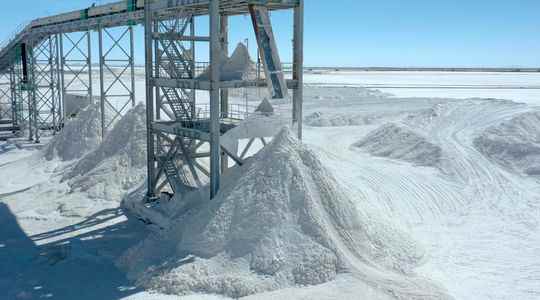At the beginning of 2020, the health crisis broke out: all over the world, supermarkets were robbed by consumers who overstock frozen products, cleaning products, etc. Two years later, here we are plunged into the Russian crisis: the German government announces that it is going to oblige companies in the energy sector to constitute strategic stocks of gas for the winter. Food supply security concerns are also coming to the fore as Ukraine represents 10% of the wheat trade market share, while Russia is the world’s leading exporter with 20%.
As for the climate crisis, it regularly comes to mind with its procession of extreme events, sparking a frantic race to secure the strategic raw materials of the transition. On the London Metal Exchange, traders are paying astronomical sums on the spot markets for immediate deliveries. The reality is simple, brutal: “It’s a completely new episode. The offer no longer responds”, explains Goldman Sachs.
What is playing out before our eyes with these successive crises is the return to the forefront of international security concerns. Strategies to combat climate change will have to integrate this new situation as quickly as possible, with the deployment of a strategy with three complementary components.
Produce at home when possible
The first is to secure supply flows for resources that cannot be produced in a strategic environment whose parameters we control. We are thinking in particular of copper or lithium. The difficulty in this regard is that the geopolitical culture of the institutions of the European Union is unequally shared. The learning curve is still long. However, we are already making structuring choices without integrating this dimension. So, shouldn’t the European all-electric path in terms of individual vehicles not be weighed against the yardstick of the new international order?
Then, produce at home everything that is possible to produce. This is the meaning of the reindustrialization strategy launched by France. The most optimistic will consider that it is easier to start from a quasi-blank page than to transform a powerful industrial apparatus, with established interests, as in Germany.
On this subject, France suffers above all from a cultural handicap: between the accusations of “productivism” brought against the nuclear industry, the stigmatization of industries linked to fossil fuels – chemistry, aeronautics – and the ideologues of degrowth who advocate a return to the land or want to believe that a maintenance industry will replace that of production, the way is narrow.
Port terminals, logistics hubs, warehouses…
In the agricultural field, the integration of the principle of security implies a radical review of the strategy for reducing our production, known as “Farm to Fork”, adopted by the European Parliament last October on a proposal from the Commission. A strategy that the European Commissioner for the Environment presented in June 2020, stating that food safety was “no longer a major concern for the European Union”.
The third way, finally, is that of storage. The end of the neoliberal order that began in the 1980s also marks the end of an “all-flow” economy to the detriment of stocks. The immense expectations with regard to hydrogen reflect this strong comeback of an economy of stocks as well as the choice of the President of the Republic to relaunch nuclear energy, uranium being both energy-intensive and easily stored.
Beyond the energy sector, the entire economy will have to reconnect with this logic of storage. Port terminals, logistics hubs, warehouses: we will have to draw the map, European and French, of the nerve centers of this new economy.
Obviously, the implementation of this triple strategy will not be a long calm river: environmental and international security issues historically fall within incompatible DNA. However, they will have to find themselves around compromises on their common subject: the attention paid to natural resources, the bases of our daily life, should help to reconcile them to make this transition an art of the basic.
